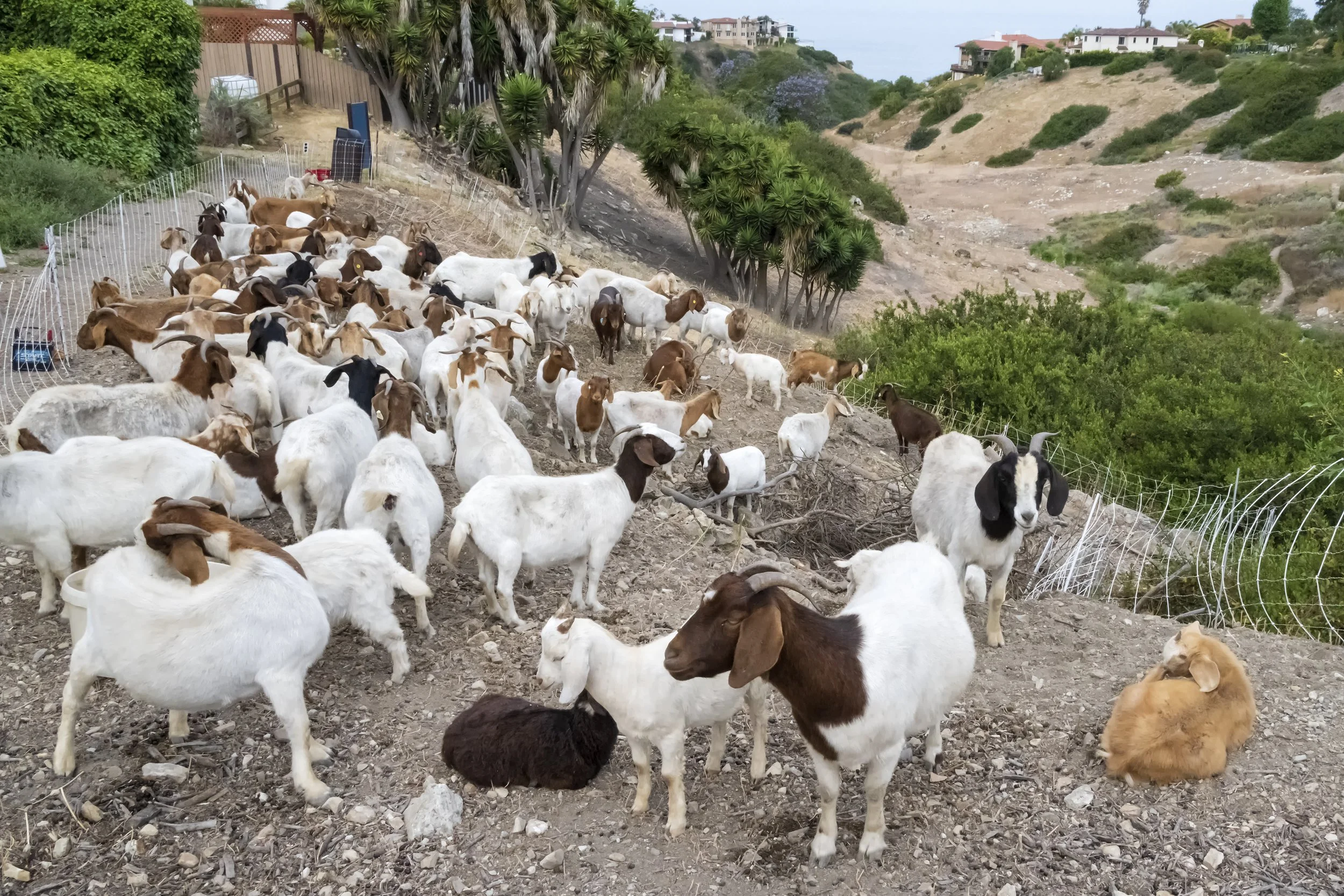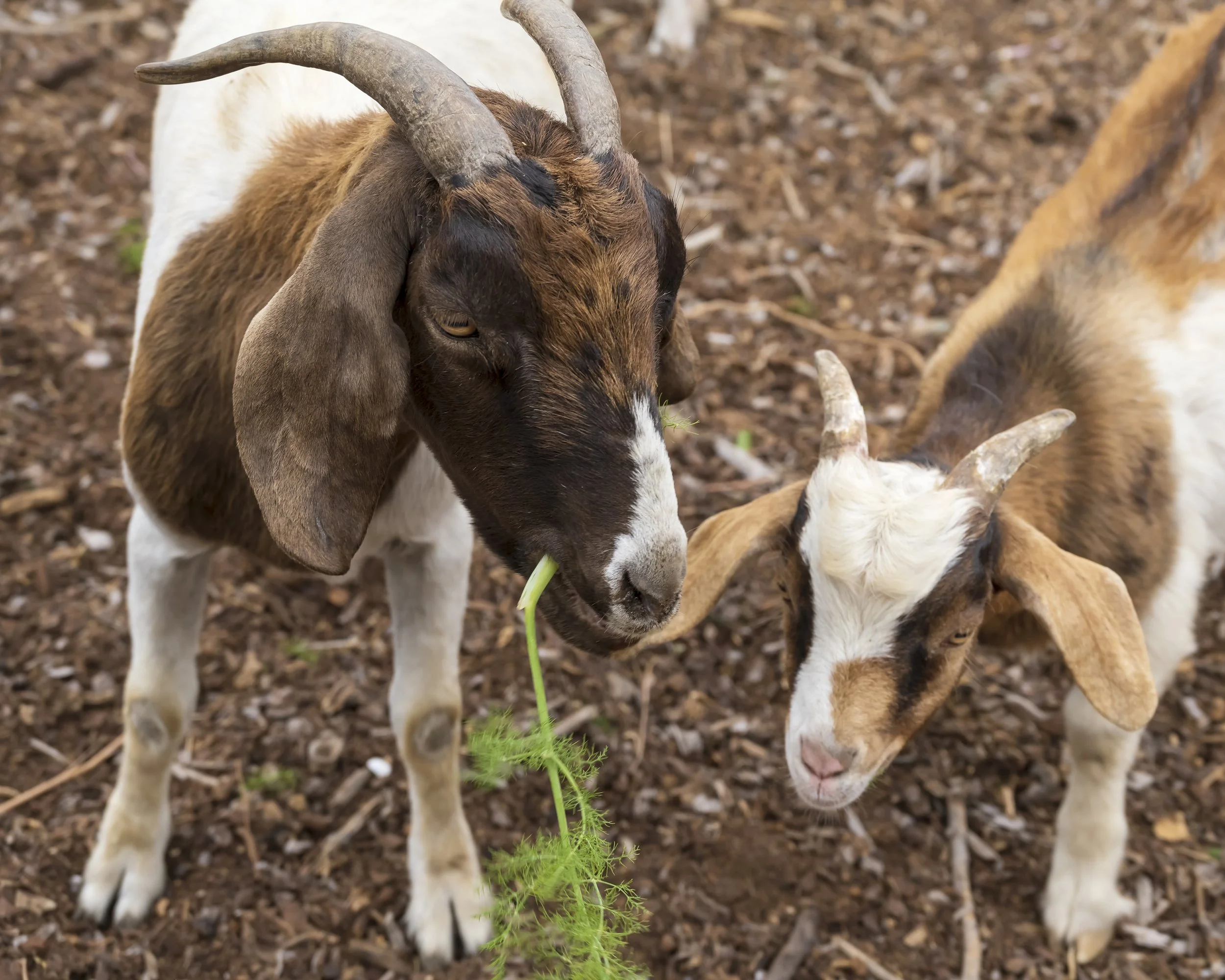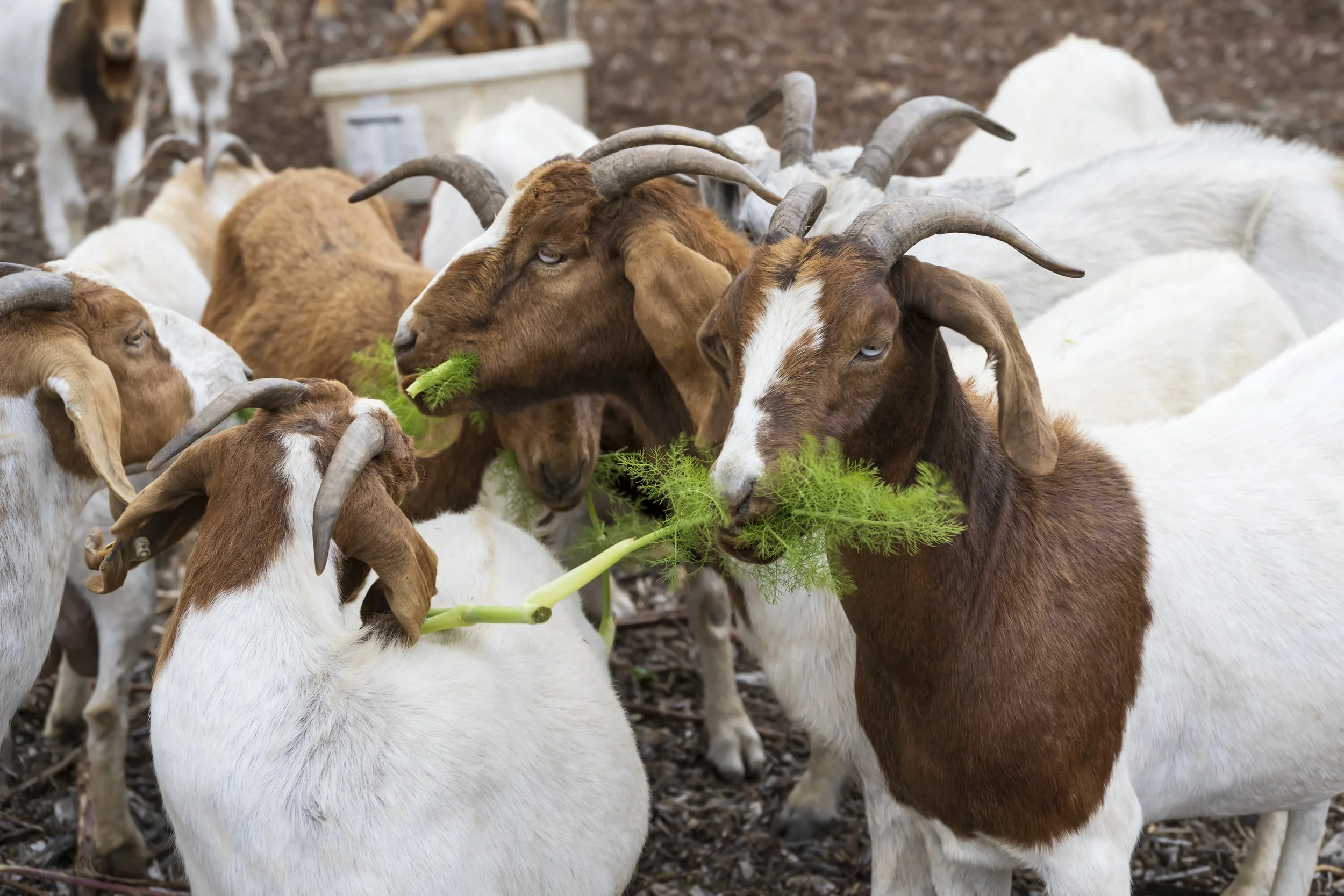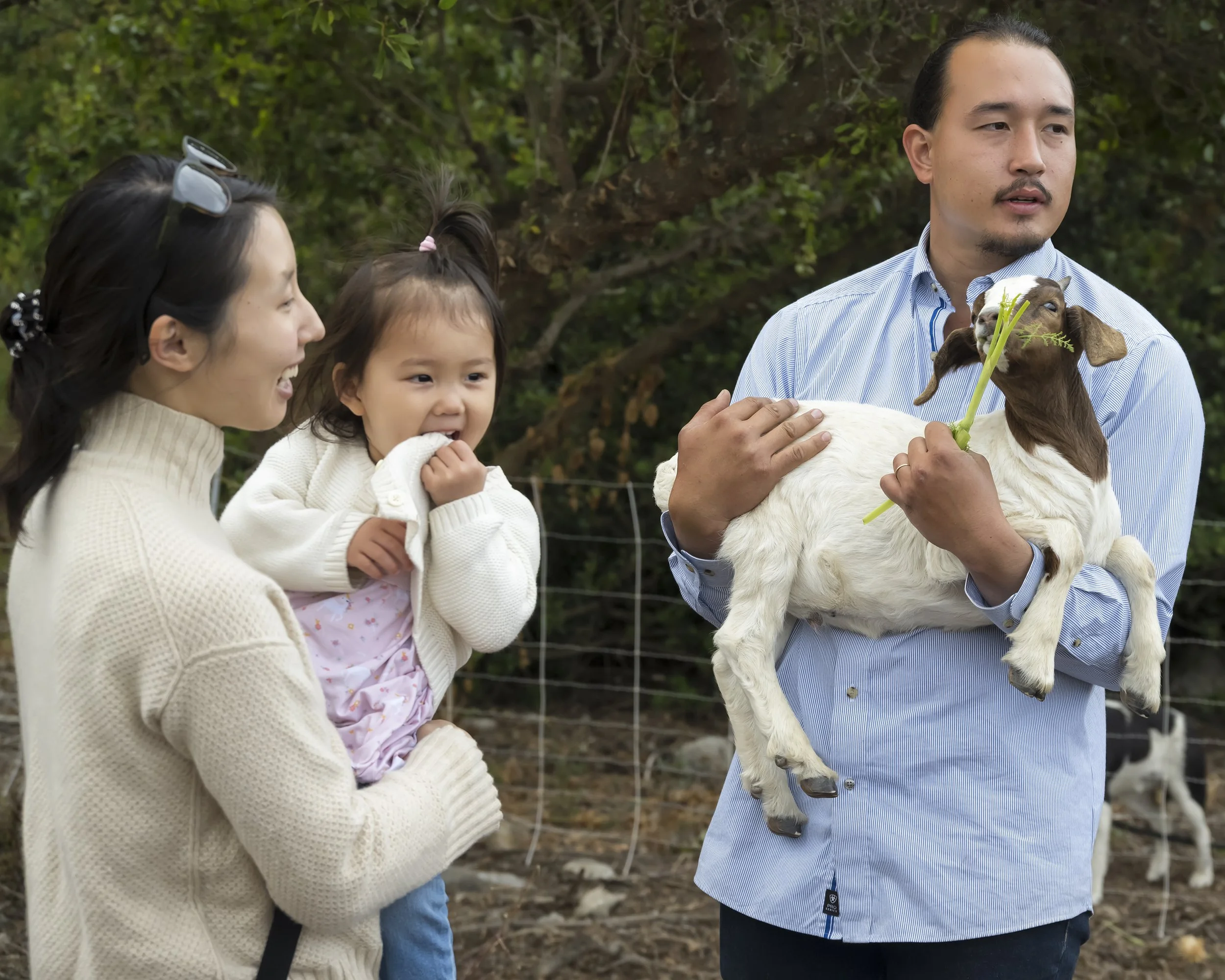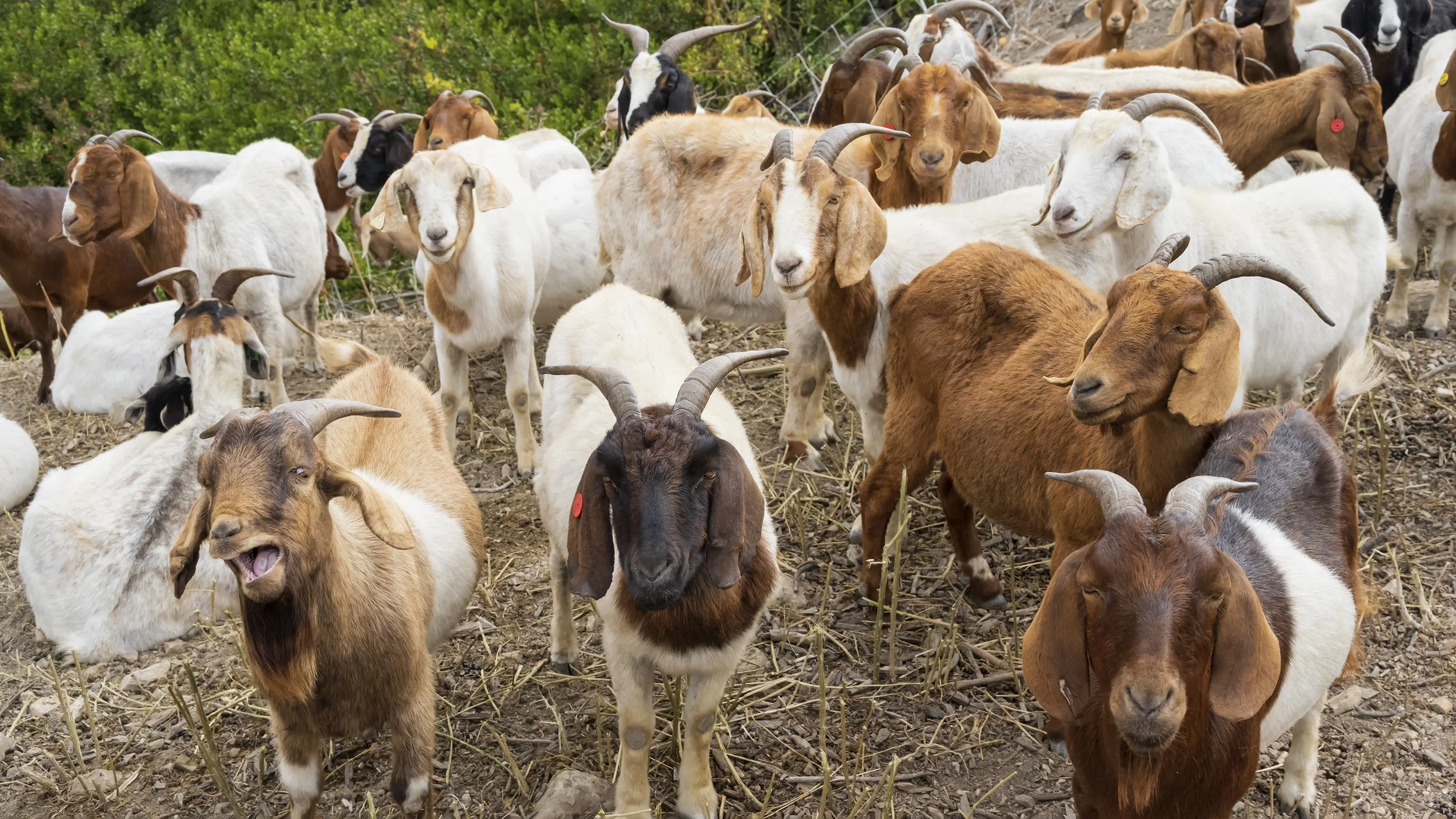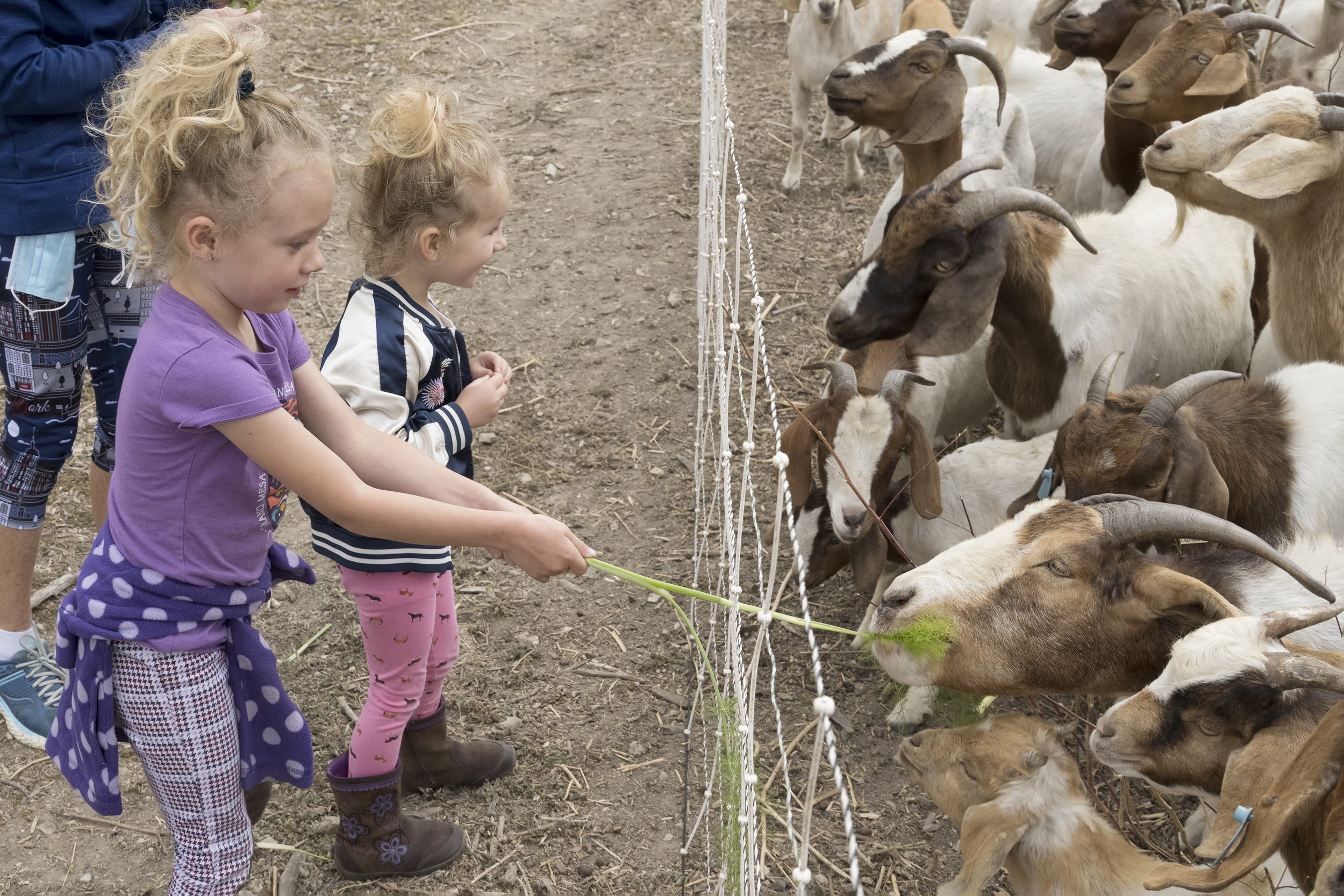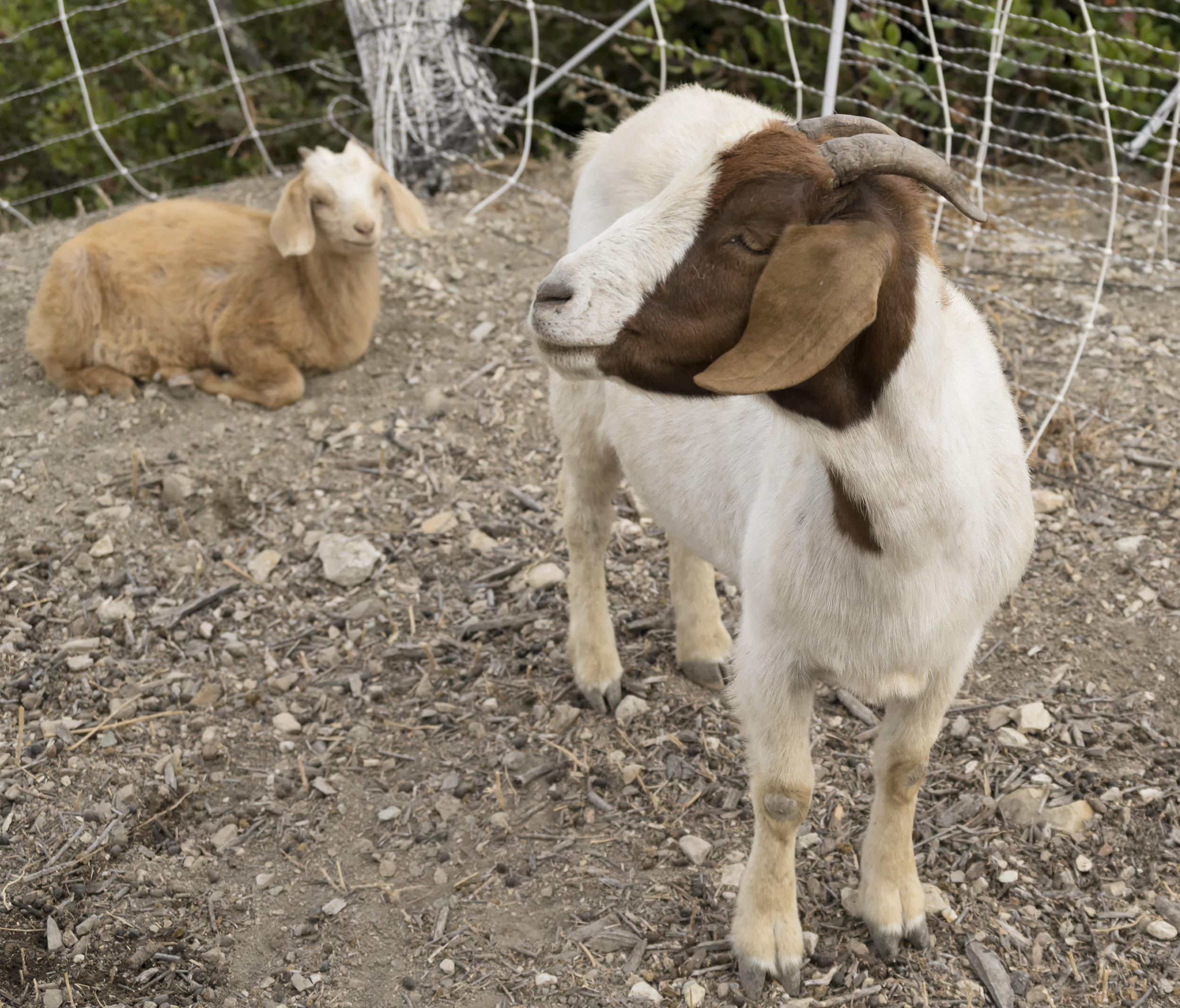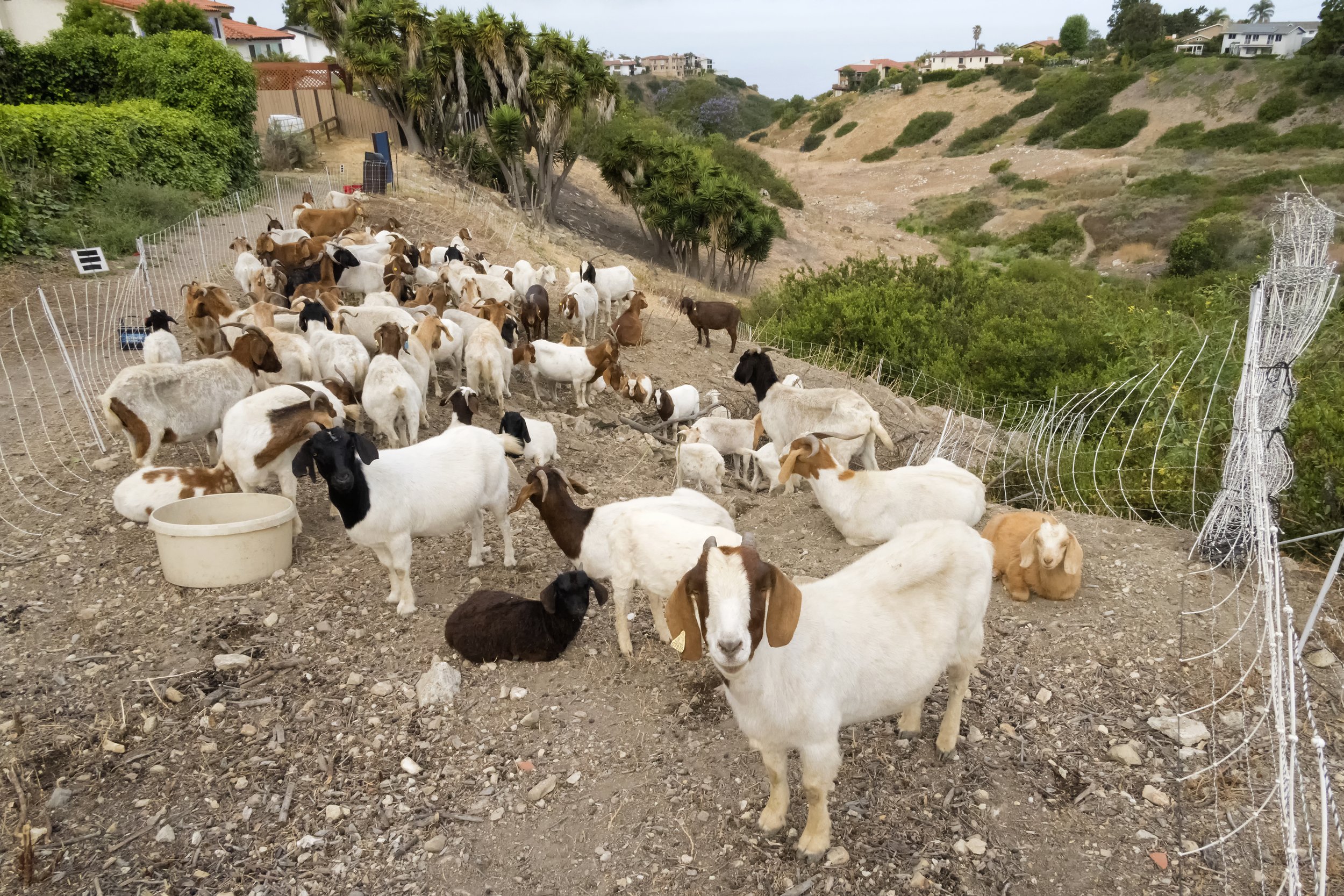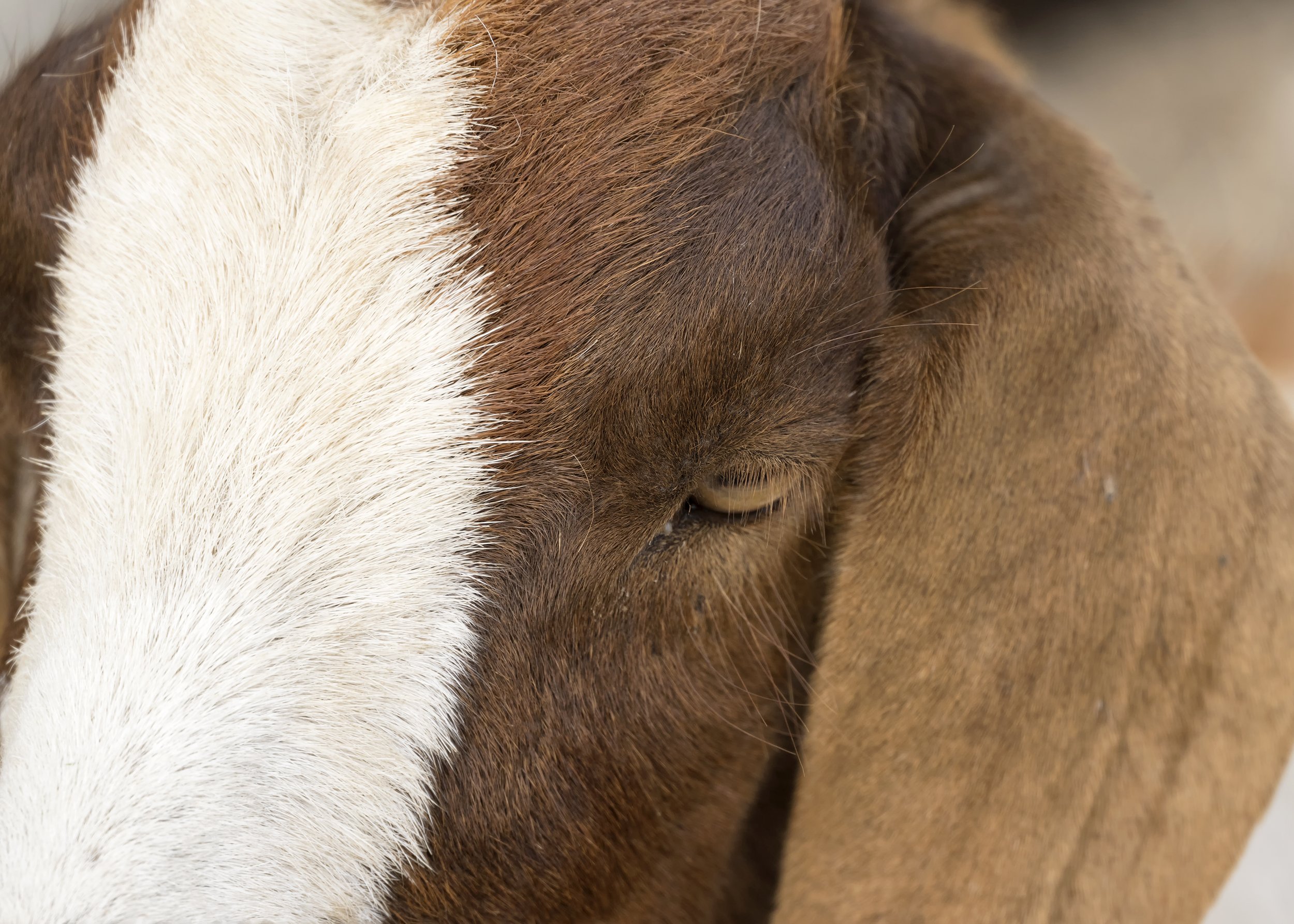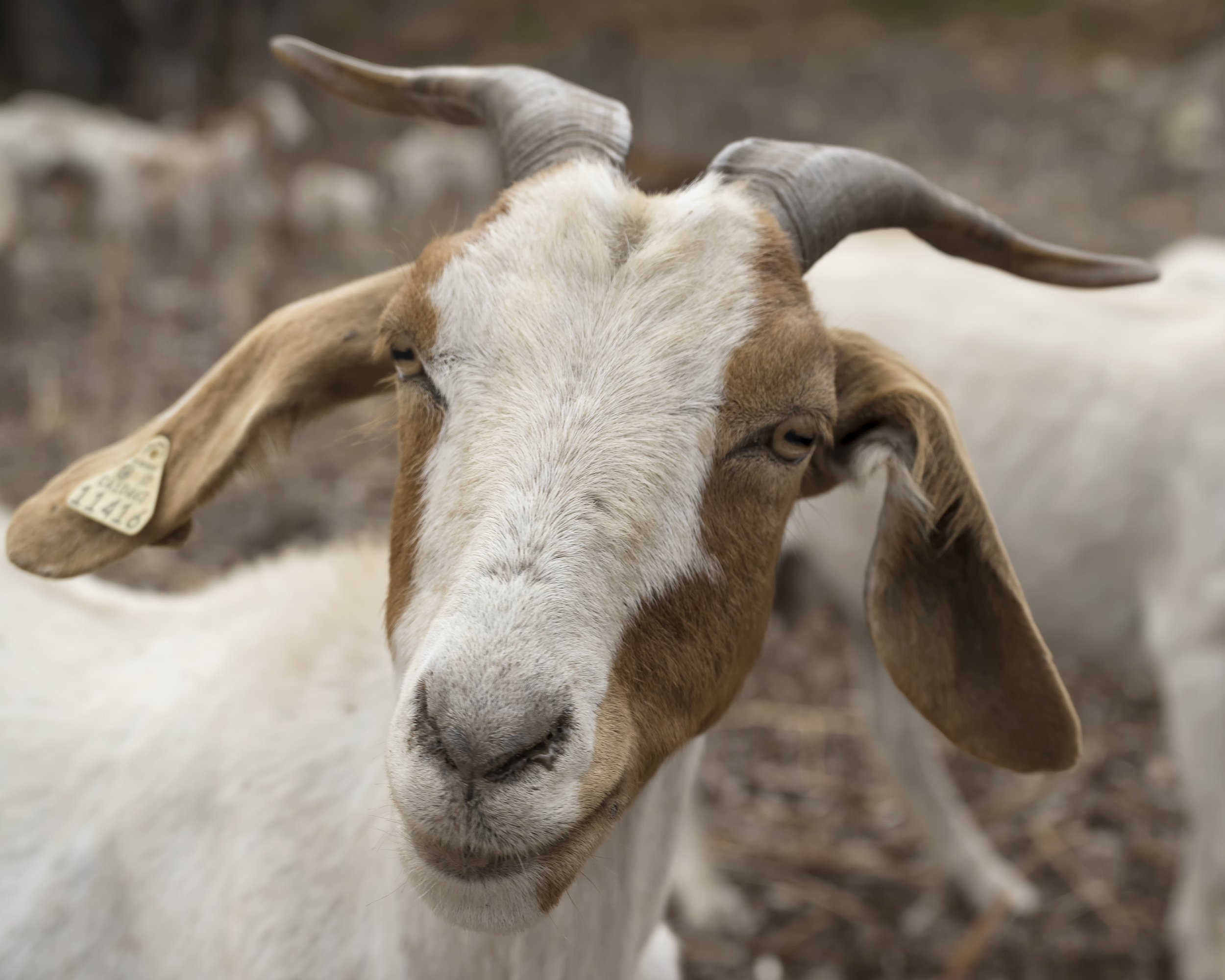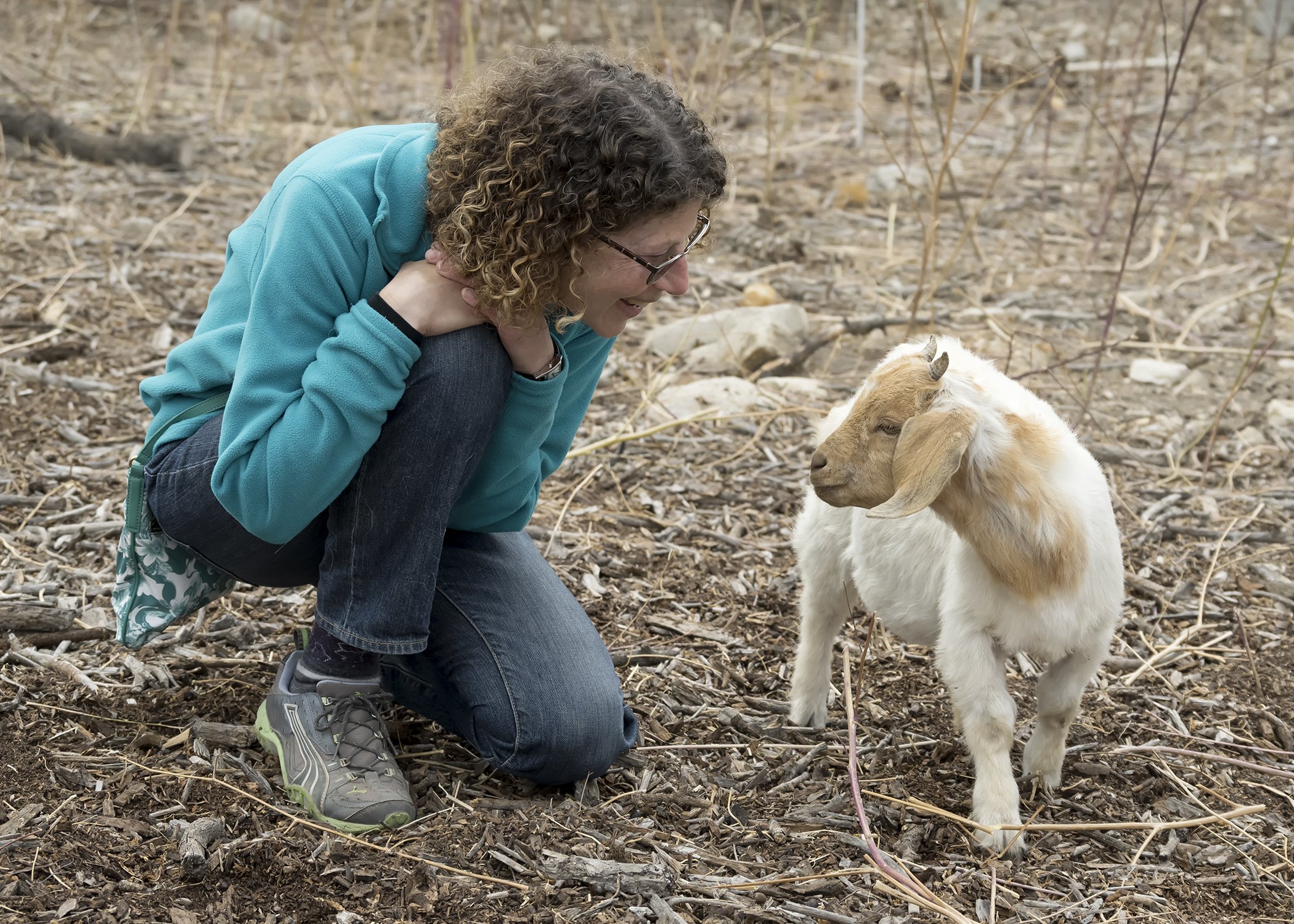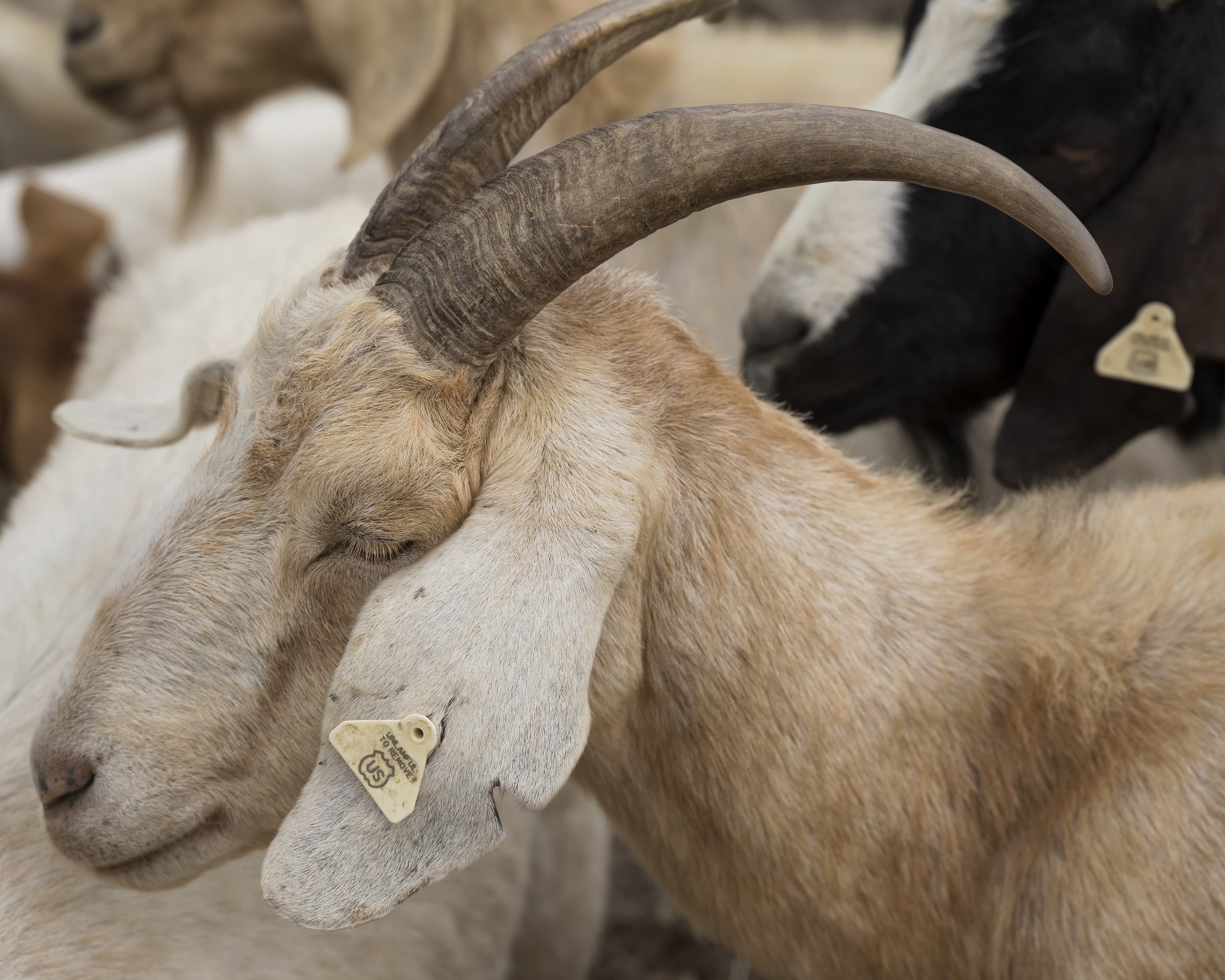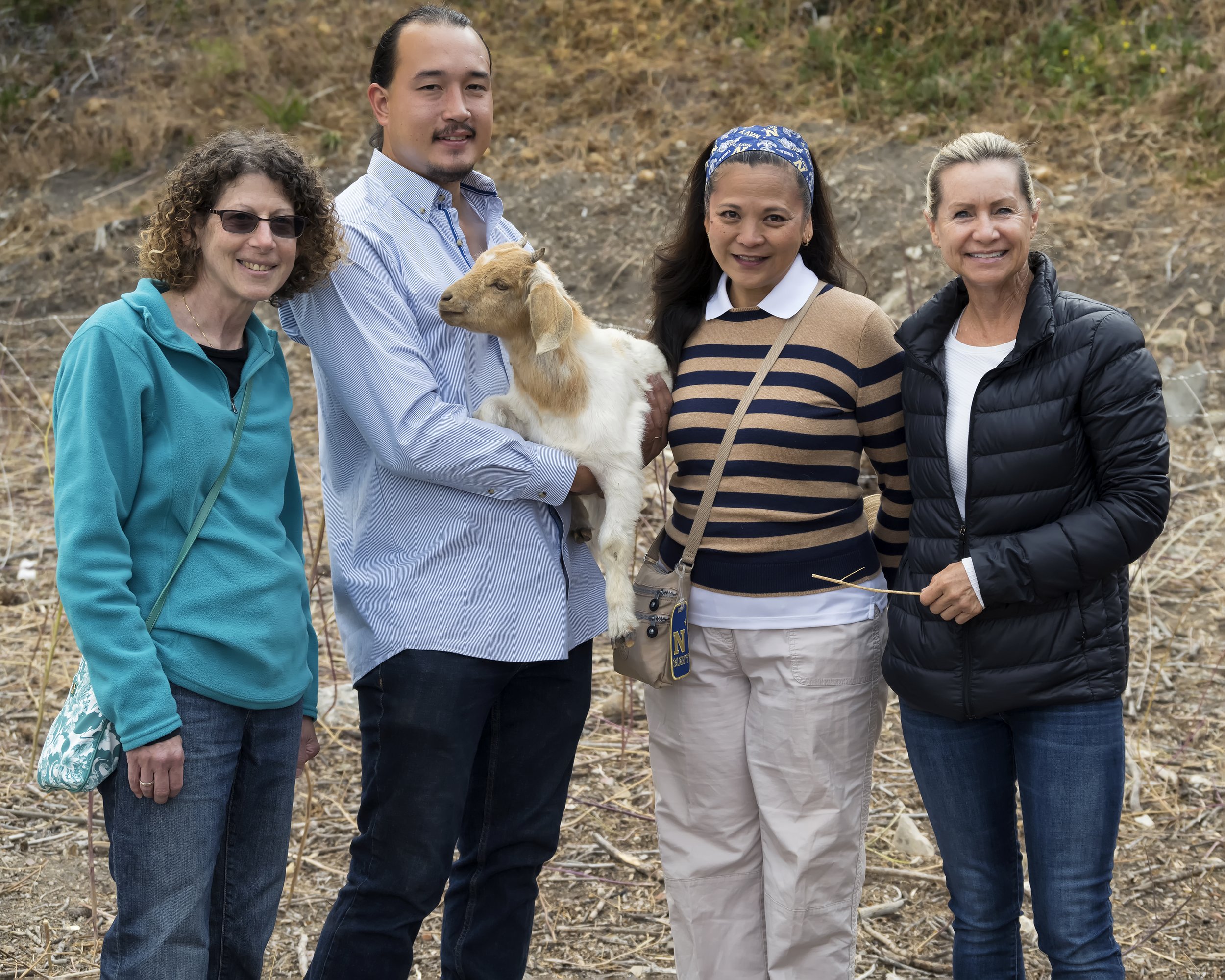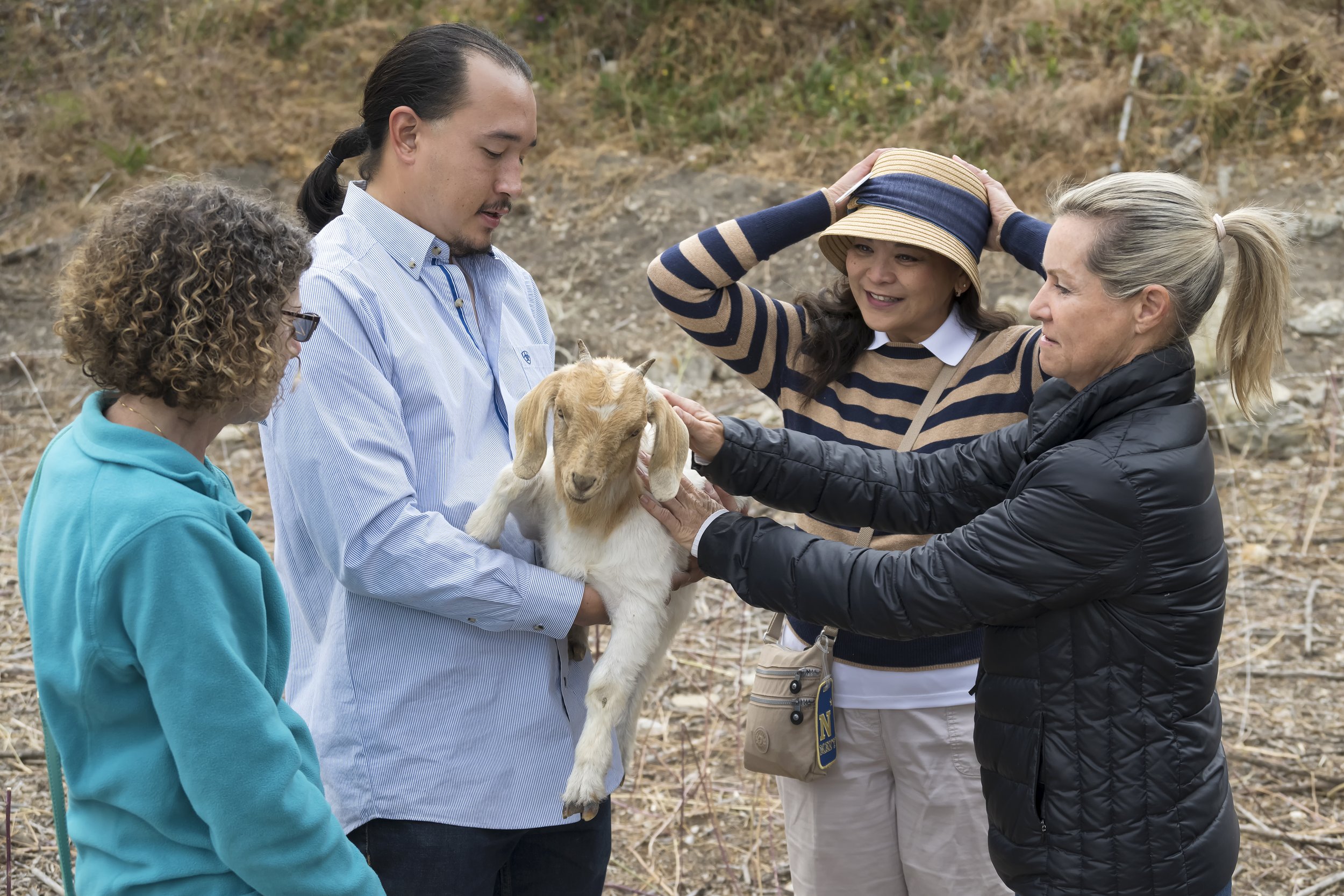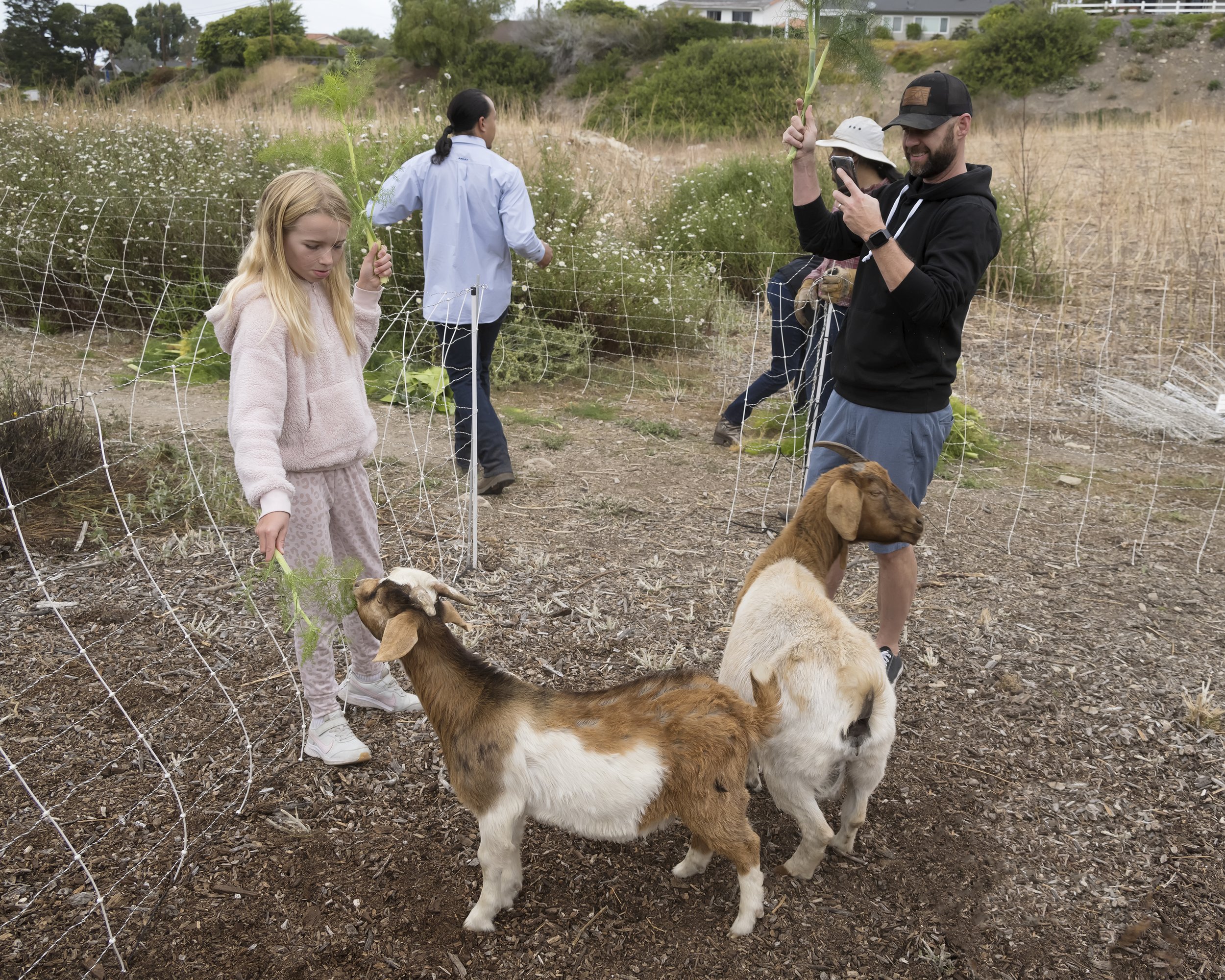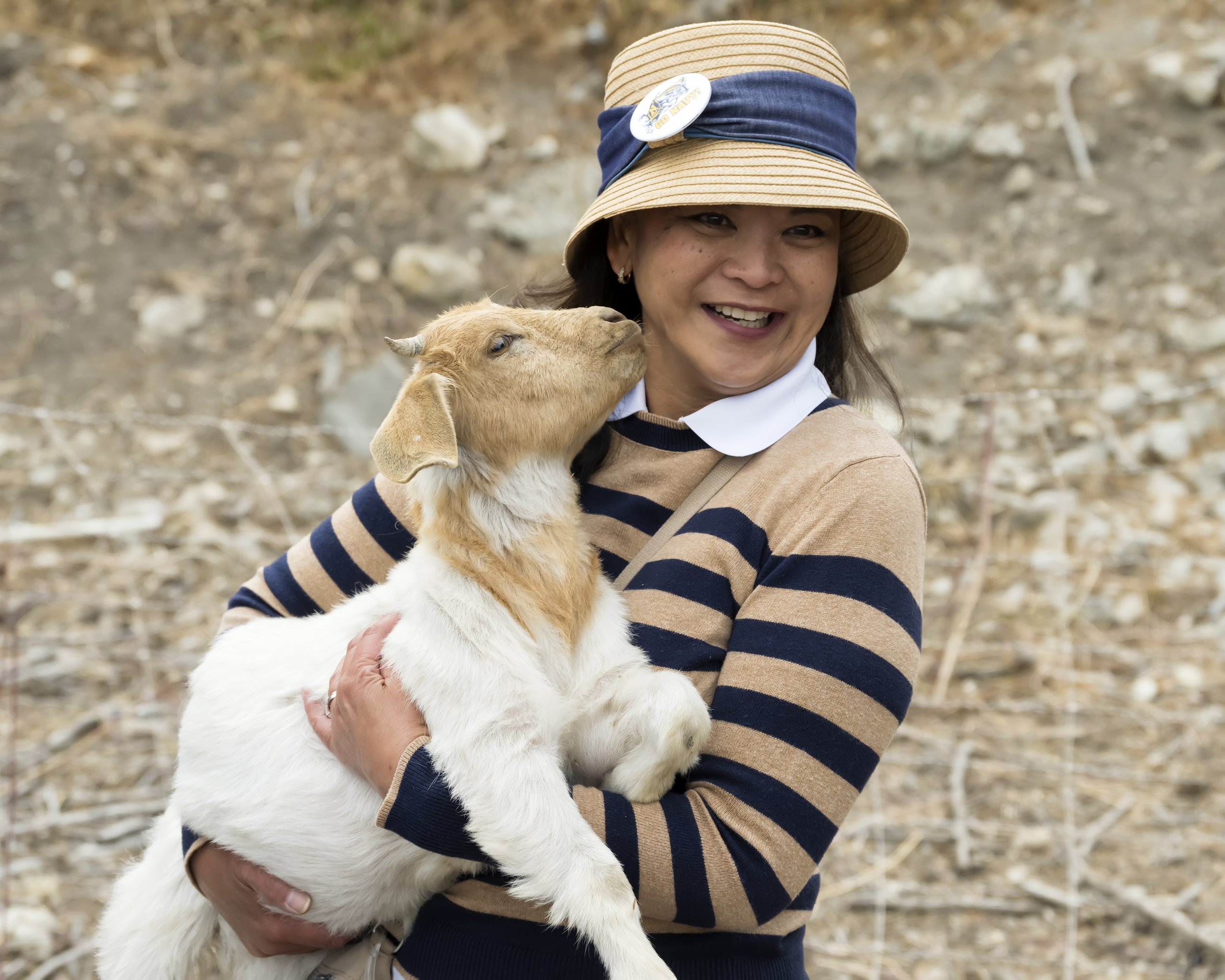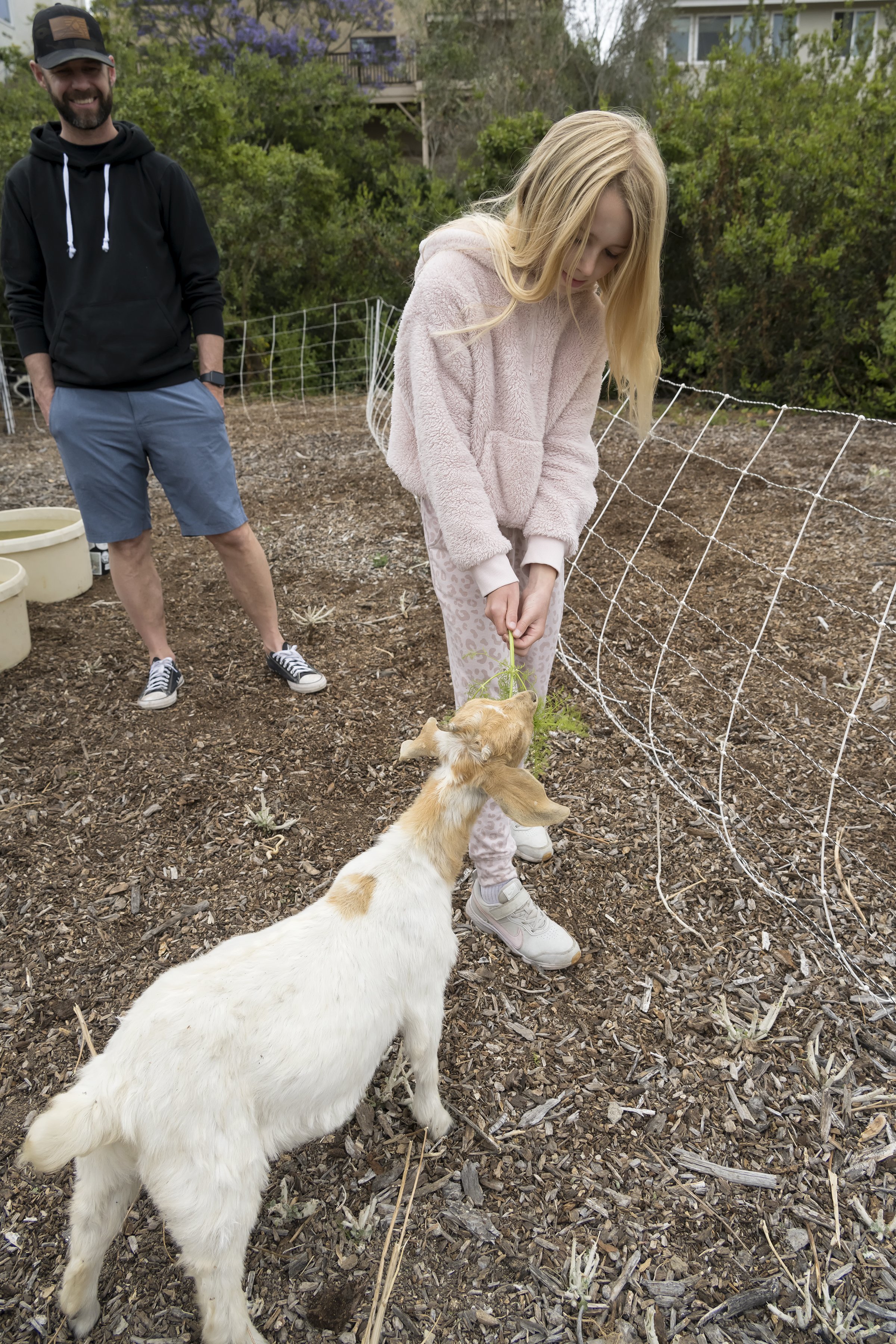They’ll Be Baaaaaaack! The Goats of Fire Grazers, Inc. Wraps Up Their Annual Peninsula Visit By Steve Tabor
For the owners of Fire Grazers, Inc. Michael Choi and his brothers, Aaron and Joseph, their annual visits to the Peninsula present a unique experience for their goats who perform bush clearance activities around the Peninsula and other areas across our state. Choi reflects, “I could say that the beautiful ocean views along with the vast population of native plants makes the Peninsula uniquely different from many of the locations we visit. In terms of actual work, I could point to the numerous canyons we have to work in that often present a treacherous environment.”
Choi estimates that during their recent visit they cleared approximately 200 acres of brush often in areas that are extremely difficult for humans to reach, let alone perform clearance activities as effectively as their four-legged employees. Cities such as Rancho Palos Verdes and the Palos Verdes Peninsula Land Conservancy (Conservancy) use Fire Grazers, Inc. to perform brush clearance, known as fuel modification, to remove grasses and other vegetation that can pose a fire danger to homes and other occupied structures that are in proximity to the canyons and other open land areas.
Cris Sarabia, Conservation Director for the Conservancy, states, “The Conservancy owns the land known as Lunada Canyon where we are responsible for fuel modification.”
In addition to using the goats for fuel modification, the Conservancy uses the goats in Lunada Canyon, located in the 59-acre Aqua Amarga Reserve and the 64-acre Abalone Cove Reserve to prepare these sites for planting native species in the fall. According to Sarabia, “The goats have multiple benefits, including keeping the biomass on site- which keeps our landfills from overfilling, causing natural disturbance to the soil that native plants need to survive, and grazing on some native species that need to be thinned of some old growth.”
In Lunada Canyon and Abalone Cove the goats target black mustard, castor bean, tree tobacco, fennel and acacia. Sarabia explains, “Every year the goats greatly assist with the removal of invasive species and limit the introduction of more invasive seeds to the site. That is why the goats graze before the plants go to seed. The goal is to eventually ‘flush’ out all of the invasive seed in the soil and give the local native plants of that area a chance to flourish.”
This year’s visit by Fire Grazers, Inc. assisted the Conservancy prepare for two long term projects beginning in the Fall of 2022. In Lunada Canyon the Conservancy is beginning an exciting three-year project restoring some key areas of the canyon while maintaining safe fire protection for the homes lining the top of the canyon. At Abalone Cove, the Conservancy has been working on a five-year restoration project that includes installing irrigation and adding an additional 2,000 native plants to a five-acre portion to the reserve.
Prior to leaving the Peninsula, the Conservancy hosts its Adopt-A-Goat celebration at Lunada Canyon. Choi exclaims, “Adopt a goat is always a special experience for me and my crew. It’s a time when we get up close and personal with the people who most want to support us and what we do and provide them with an opportunity to really meet the goats and us and to get an understanding of who we are. It is great to see and to be a part of that.”
The celebration brings smiles to the faces of the audience of young and old hoping for an opportunity to interact with these local celebrities. For Ryan and his daughter, it was their first time at the event. According to Ryan, “My daughter loves animals and really wanted to see the goats that she adopted up close and watch them help our community.”
This was Kelly and her daughter’s second year attending the event. Kelly shares, “Last year she was too small to feed the goats, but this year was perfect for her to interact and pet them. It was so special getting to see her feed the goats and get to know more about the peninsula’s natural environment. She thinks it is really funny when the goats eat grass, and now when we go on walks in our neighborhood, she thinks all the grass is goat food.”
Choi summarizes, “I think that why goats draw such a positive reaction is the fact that it makes sense. It works in so many ways and for so many reasons that I couldn’t really list them all. The whole day just kind of blends the feelings of love, excitement, and joy into one feeling. I like seeing how happy children get when they come in the fence and get to interact with the goats.”
Sarabia points out that the program could not be carried out without the financial support of community members. The Conservancy is thankful to those who support the project by providing $100 contributions with each contribution supporting one day of grazing by one of these beloved four-legged creatures.
The Conservancy is already planning for Fire Grazers, Inc.’s 2023 visit. If you want to learn about the program or other Conservancy projects and volunteer opportunities visit the Conservancy’s website at www.pvplc.org, email info@pvplc.org or telephone (310) 541-7613.
Steve Tabor Bio
This South Bay native’s photographic journey began after receiving his first 35 mm film camera upon earning his Bachelor of Arts degree. Steve began with photographing coastal landscapes and marine life. As a classroom teacher he used photography to share the world and his experiences with his students. Steve has expanded his photographic talents to include portraits and group photography, special event photography as well as live performance and athletics. Steve serves as a volunteer ranger for the Catalina Island Conservancy and uses this opportunity to document the flora and fauna of the island’s interior as well as photograph special events and activities.
Watch for Steve Tabor Images on the worldwide web.

